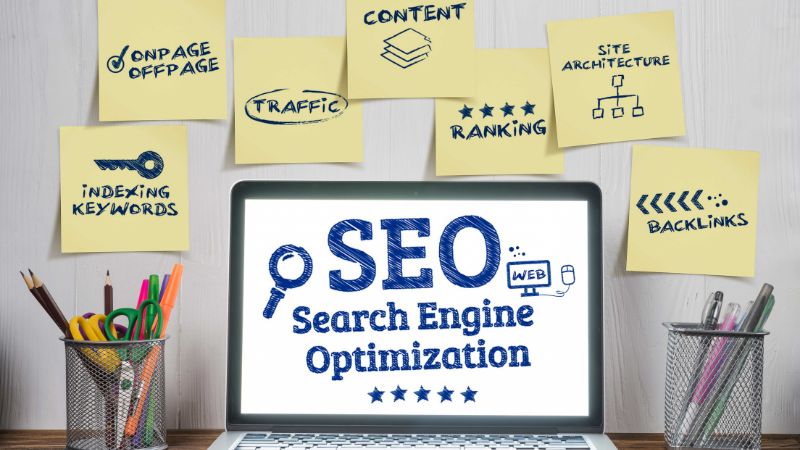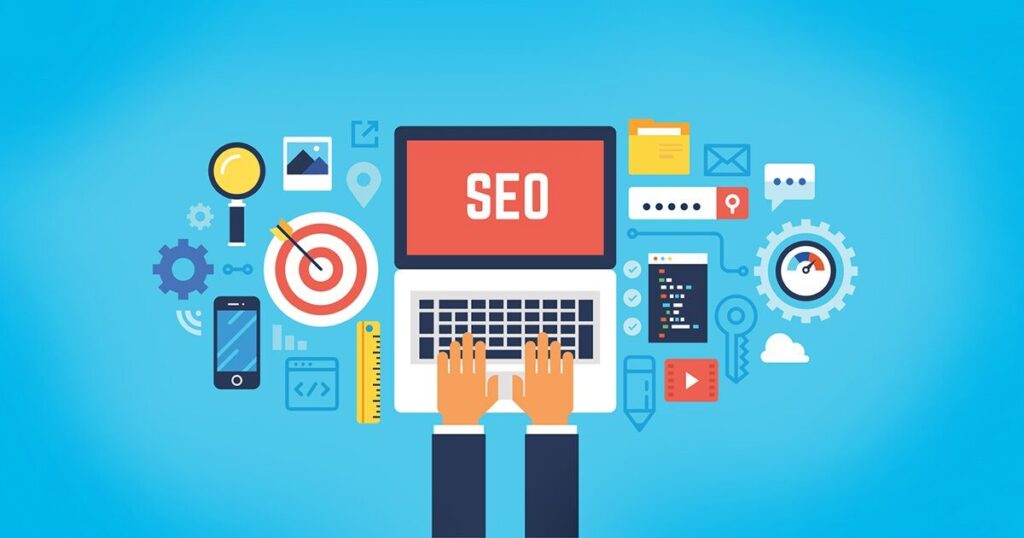
On-page SEO is a crucial part of optimizing your website to rank higher in search engine results pages (SERPs). By focusing on the Best on-page SEO, you can improve your website’s relevance, user experience, and technical structure to make it easier for search engines to crawl and index your content. Here are some essential elements of on-page SEO:
10 Best On-Page SEO Strategies
- Title Tags: Your title tag is the text that appears in the SERP as the clickable headline for your webpage. Make sure it accurately reflects the content of the page and includes your target keyword.
- Meta Descriptions: The meta description is the brief summary that appears under the title tag in the SERP. It should be well-written, engaging, and accurately describe the content of the page, as this can impact click-through rates.
- Header Tags: Use header tags (H1, H2, H3, etc.) to organize your content and indicate the hierarchy of the information on the page. This can help search engines understand the structure of your content.
- Keyword Optimization: Include your target keyword in the title tag, meta description, header tags, and throughout the body of the content in a natural and meaningful way. Avoid keyword stuffing, which can harm your ranking.
- Quality Content: High-quality, relevant, and engaging content is key to on-page SEO success. Make sure your content provides value to the reader and is informative, useful, and shareable.
- Images and Alt Tags: Use relevant images and optimize them with alt tags, which provide a text description of the image. This can improve the accessibility and relevance of your content.
- Internal Links: Link to other relevant pages within your website to help search engines understand the structure and relevance of your content. This can also help keep visitors engaged and on your website longer.
- External Links: Link to high-quality, relevant external websites to provide additional value to your readers and demonstrate the authority and relevance of your content.
- User Experience: Ensure your website is easy to navigate, loads quickly, and is mobile-friendly. A positive user experience can improve engagement and reduce bounce rates, which can improve your ranking.
- Technical SEO: Ensure your website has a clear and organized structure, is crawlable by search engines, and has optimized URLs, sitemaps, and robots.txt files. Technical SEO can help improve the visibility and accessibility of your content.
By focusing on these essential elements of on-page SEO, you can improve your website’s visibility, relevance, and user experience, which can lead to higher rankings and increased organic traffic. Remember to prioritize quality content and user experience, and always follow best practices to avoid any penalties or negative impact on your ranking.

Questions About SEO – Top 10 Questions Asked & Answered
What is SEO and why is it important?
SEO, or search engine optimization, is the practice of optimizing a website in order to improve its ranking and visibility on search engines like Google, Bing, and Yahoo. It is important because it helps websites to attract more organic traffic, which can lead to increased sales, leads, or conversions.
How do search engines determine rankings?
Search engines use complex algorithms to determine rankings, taking into account a range of factors such as website content, keywords, backlinks, website speed, user experience, and many other variables.
What is on-page optimization?
On-page optimization refers to the process of optimizing individual web pages in order to improve their ranking and visibility on search engines. This includes optimizing content, meta tags, URL structure, internal linking, and other on-page factors.
What is off-page optimization?
Off-page optimization refers to activities that are performed outside of the website, in order to improve its ranking and visibility on search engines. This includes building backlinks, social media engagement, and other external factors that influence search engine rankings.
What is keyword research?
Keyword research is the process of identifying and analyzing the keywords and phrases that people use to search for products or services online. This is important for SEO, as it helps website owners to optimize their content for the most relevant and high-traffic keywords.
What is link building?
Link building is the process of acquiring backlinks from other websites to your own website. Backlinks are important for SEO, as they signal to search engines that your website is authoritative and relevant.
What is local SEO?
Local SEO is the practice of optimizing a website or web page for local search results. This includes optimizing content for location-specific keywords, creating local business listings, and building backlinks from local sources.
What is mobile optimization?
Mobile optimization refers to the process of optimizing a website for mobile devices, such as smartphones and tablets. This includes improving website speed, optimizing content for smaller screens, and creating a mobile-friendly user experience.
What is a sitemap?
A sitemap is a file that lists all of the pages on a website, in order to help search engines crawl and index the site more efficiently. Sitemaps can improve website visibility and ranking on search engines.
How long does SEO take to see results?
SEO is a long-term process, and it typically takes time and effort to see results. Depending on the competitiveness of the keywords and the quality of the SEO work, it can take several months or even up to a year to see significant improvements in website ranking and visibility on search engines.

Leave a Reply